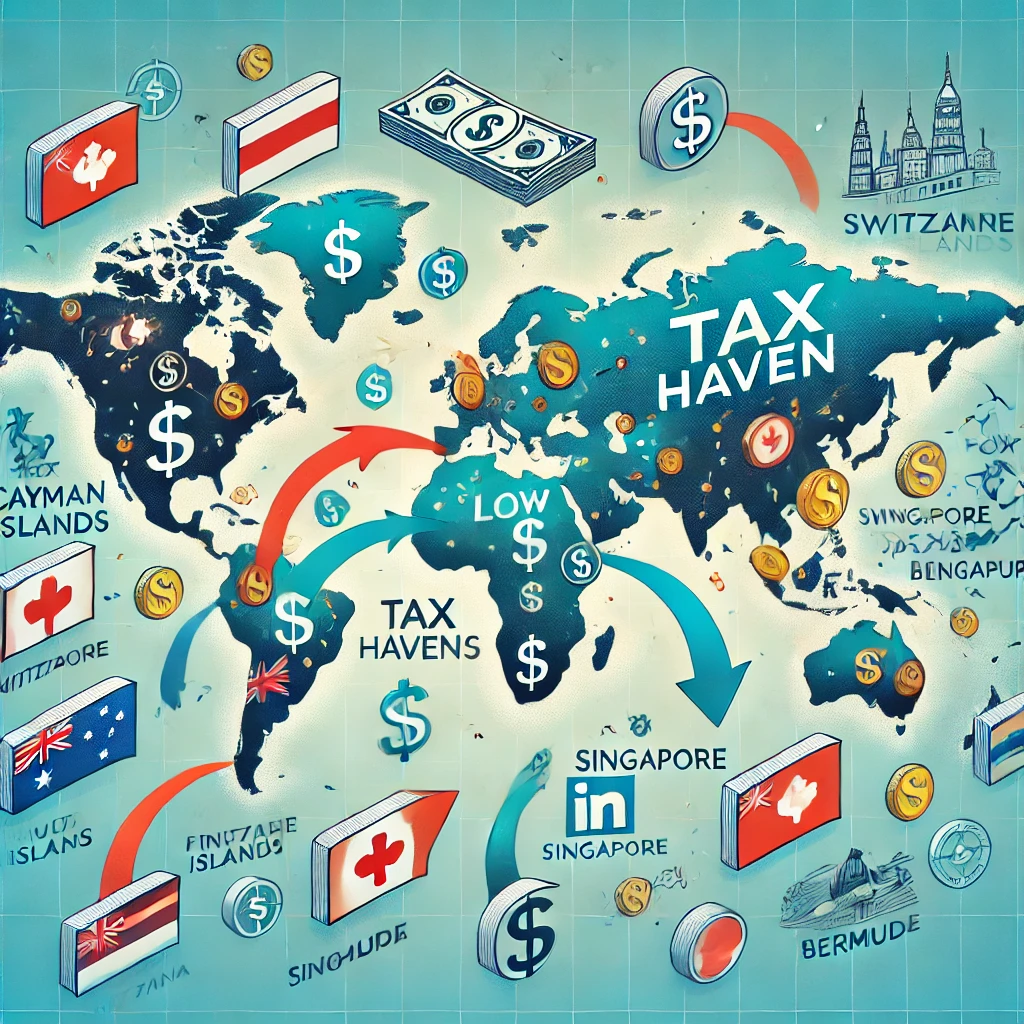Tax havens have become a hot topic in the financial world, especially among wealthy individuals and multinational corporations (MNCs). These locations offer minimal tax rates, financial privacy, and asset protection, making them highly attractive for those looking to reduce their tax burden legally. But while the allure is strong, it’s important to weigh both the benefits and the potential risks of using tax havens.
How Do Tax Havens Work?
Tax havens are countries or territories that impose low or no taxes on income, capital gains, or corporate profits. They attract foreign individuals and companies by offering financial secrecy and protection from scrutiny. This secrecy, coupled with favorable tax laws, allows businesses to legally shift profits and assets to these regions, significantly reducing their tax liability.
A Real-Life Example: Apple and Ireland
A famous case that sheds light on how tax havens operate involves Apple and Ireland. Apple used Ireland’s favorable tax laws to establish a presence there, significantly lowering its tax bill on worldwide profits. By shifting a portion of its revenue to Irish subsidiaries, Apple legally reduced its overall tax burden, sparking debates on whether such practices, while legal, are ethically justifiable.
The controversy surrounding this practice was so significant that the European Union eventually ruled that Apple owed billions in unpaid taxes. This example highlights the fine line between legal tax optimization and aggressive tax avoidance.
Benefits of Tax Havens
Tax Savings
The primary reason businesses and individuals use tax havens is to reduce taxes. For example, a company headquartered in the U.S. might shift its profits to a tax haven like the Cayman Islands, where there’s no corporate income tax. This can result in substantial savings.
Financial Privacy
Tax havens often provide strict confidentiality laws, making it difficult for foreign authorities to access information about individuals or companies. This can be appealing if you prefer to keep your financial dealings private, especially for high-net-worth individuals (HNIs) concerned about security.
Asset Protection
Many tax havens offer legal frameworks that protect assets from creditors or legal disputes, providing an extra layer of security for your wealth. For instance, if you own property in a politically unstable country, moving some of your assets to a haven like Switzerland might offer peace of mind.
Economic and Political Stability
Tax havens are usually politically stable with strong financial systems, which ensures that assets are kept safe from volatility in other parts of the world. Many wealthy individuals park their funds in havens to avoid risks in their home countries.
Drawbacks of Tax Havens
Reputation Risks
While using tax havens can offer significant benefits, being associated with one may lead to reputational damage. Many companies that use tax havens are often accused of tax evasion or unethical behavior, even if their actions are legal.
Increased Scrutiny
With increasing global efforts to combat tax avoidance, governments have introduced regulations like the Common Reporting Standard (CRS) and the Base Erosion and Profit Shifting (BEPS) project. These initiatives increase scrutiny on tax havens, making it more difficult to maintain secrecy and potentially increasing compliance costs.
Potential Legal Risks
While tax havens are legal, the fine line between tax avoidance and evasion can lead to legal battles. For example, the pressure from governments and international bodies could lead to changes in the laws of tax havens, increasing the risk for companies relying heavily on them.
Should You Use a Tax Haven?
Whether or not to use a tax haven depends on your business goals and ethical considerations. If you are a high-net-worth individual or run a multinational company, tax havens might offer you a competitive edge through tax savings and asset protection. However, the potential risks — both reputational and legal — should be considered carefully.
The Future of Tax Havens
As global scrutiny increases, the landscape for tax havens is changing. Governments are cooperating more than ever to close loopholes and crack down on aggressive tax avoidance. For businesses and individuals, this means greater transparency and accountability, which could diminish some of the traditional advantages of tax havens.
Wrapping Up
Tax havens offer undeniable financial benefits but come with risks that need to be carefully evaluated. As an experienced forensic accountant and international tax consultant, I always recommend a thorough analysis of both legal and ethical considerations before engaging in any tax haven strategies. Understanding the balance between the advantages and potential risks will ensure your decisions are both beneficial and compliant with international regulations.
By adopting a strategic, well-informed approach, businesses and individuals can minimize tax liability without crossing legal boundaries. This insight helps position you for success while staying on the right side of the law.
If you’re considering tax planning strategies involving tax havens, reach out to me for expert advice and hands-on experience in navigating this complex landscape.

